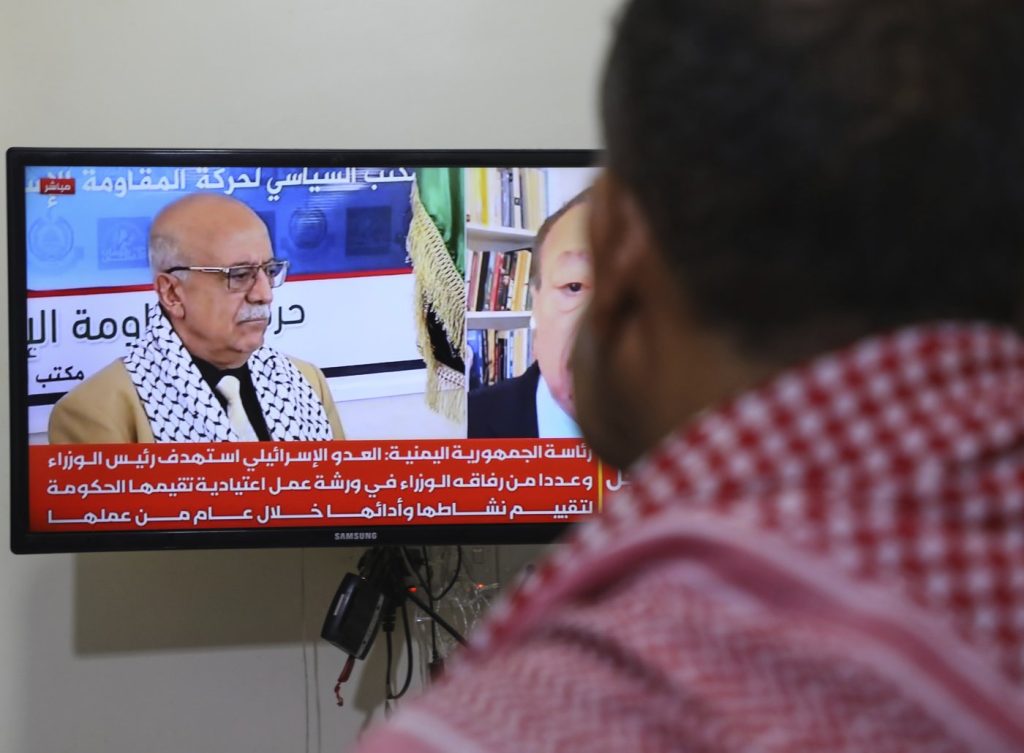CAIRO (AP) – An Israeli airstrike has reportedly killed Ahmed al-Rahawi, the prime minister of the Houthi rebel-controlled government in Yemen’s capital, Sanaa, marking a significant escalation in the ongoing conflict. The Houthis announced this news on Saturday, stating that al-Rahawi was the highest-ranking Houthi official to be killed amidst the Israeli-U.S. campaign targeting the Iranian-backed rebels.
The airstrike that resulted in al-Rahawi’s death took place on Thursday in Sanaa during a meeting that involved various ministers and officials aimed at evaluating the government's performance over the past year. The attack, according to Houthi officials, coincided with a live broadcast by Abdul Malik al-Houthi, the elusive leader of the group, who was discussing developments in Gaza and promising retaliation against Israel. This suggests that the strike was not only aimed at a government meeting but also intended to disrupt the Houthi leadership’s unified front.
The targeted meeting occurred in a villa located in Beit Baws, an ancient village in southern Sanaa. Several other ministers were reportedly wounded, but specific details regarding casualties remained vague. An Israeli military spokesperson characterized the strike as a “precise” attack on a Houthi “terrorist regime military target” in the area, but there was no immediate comment following the confirmation of al-Rahawi’s death.
In previous statements, al-Rahawi expressed solidarity with the Palestinian people, particularly in light of an earlier Israeli strike that hit an oil facility owned by Houthi-controlled companies in Yemen. The escalating tensions between the Houthis and Israel were notably demonstrated when the Houthis launched a ballistic missile towards Israel, described by the Israeli military as the first use of cluster bombs against them since 2023.
Al-Rahawi, who hailed from Abyan province, had previously allied himself with the Houthis during their takeover of Sanaa in 2014, leading to the persistent civil war in Yemen. He was appointed prime minister in August 2024, becoming a key figure in the Houthi government. His assassination represents a major setback for the Houthis, according to Ahmed Nagi, a senior Yemen analyst with the Crisis Group International, indicating a strategic shift in Israeli tactics from infrastructure strikes to targeting leadership figures, thereby jeopardizing the rebels’ command structure.
In light of the Israel-Hamas war in the Gaza Strip, the Houthis have launched a campaign against shipping in the Red Sea, claiming their actions are in solidarity with the Palestinians. These attacks have significantly disrupted trade routes, with shipping in the Red Sea servicing approximately $1 trillion worth of goods annually. A past arrangement in May between the Trump administration and the Houthis aimed to cease airstrikes in exchange for an end to assaults on shipping; however, the Houthis maintained that this agreement did not encompass halting strikes against entities believed to be aligned with Israel.
The death of al-Rahawi, who represented a shift in the Houthis' operational leadership, underscores the continuing complexity and volatility of the conflict within Yemen, further fueled by broader regional tensions involving Israel and its adversaries.










